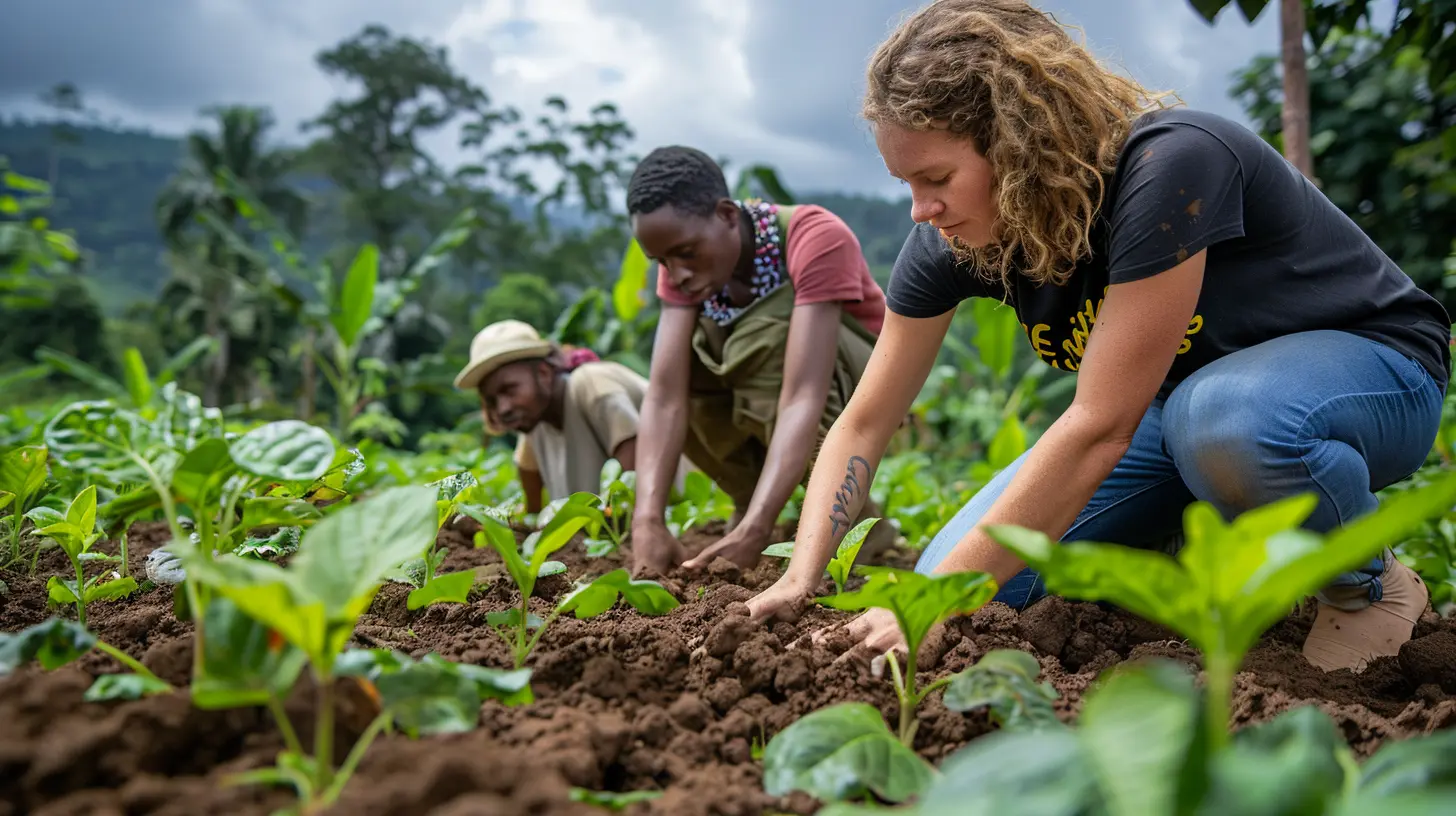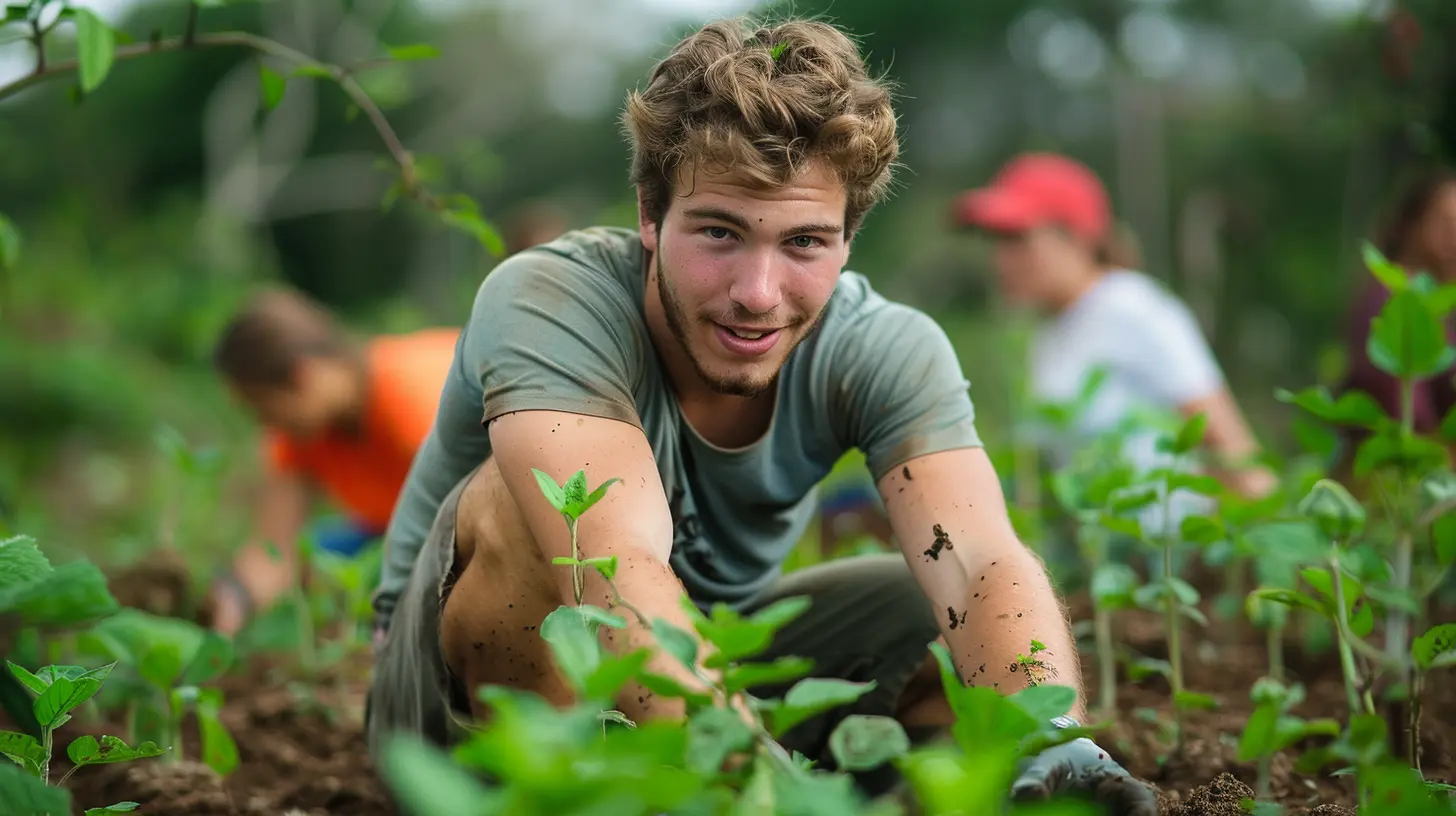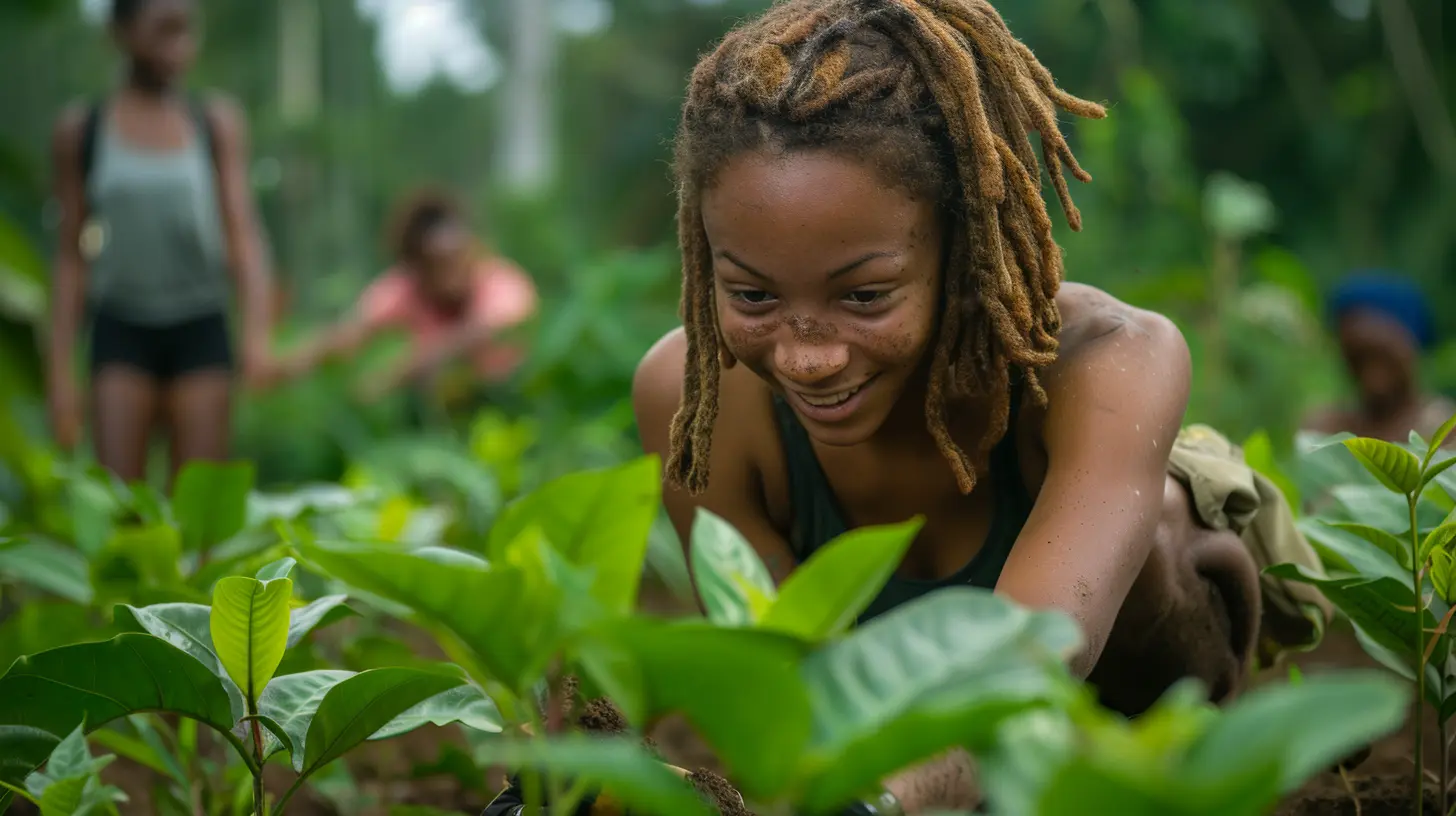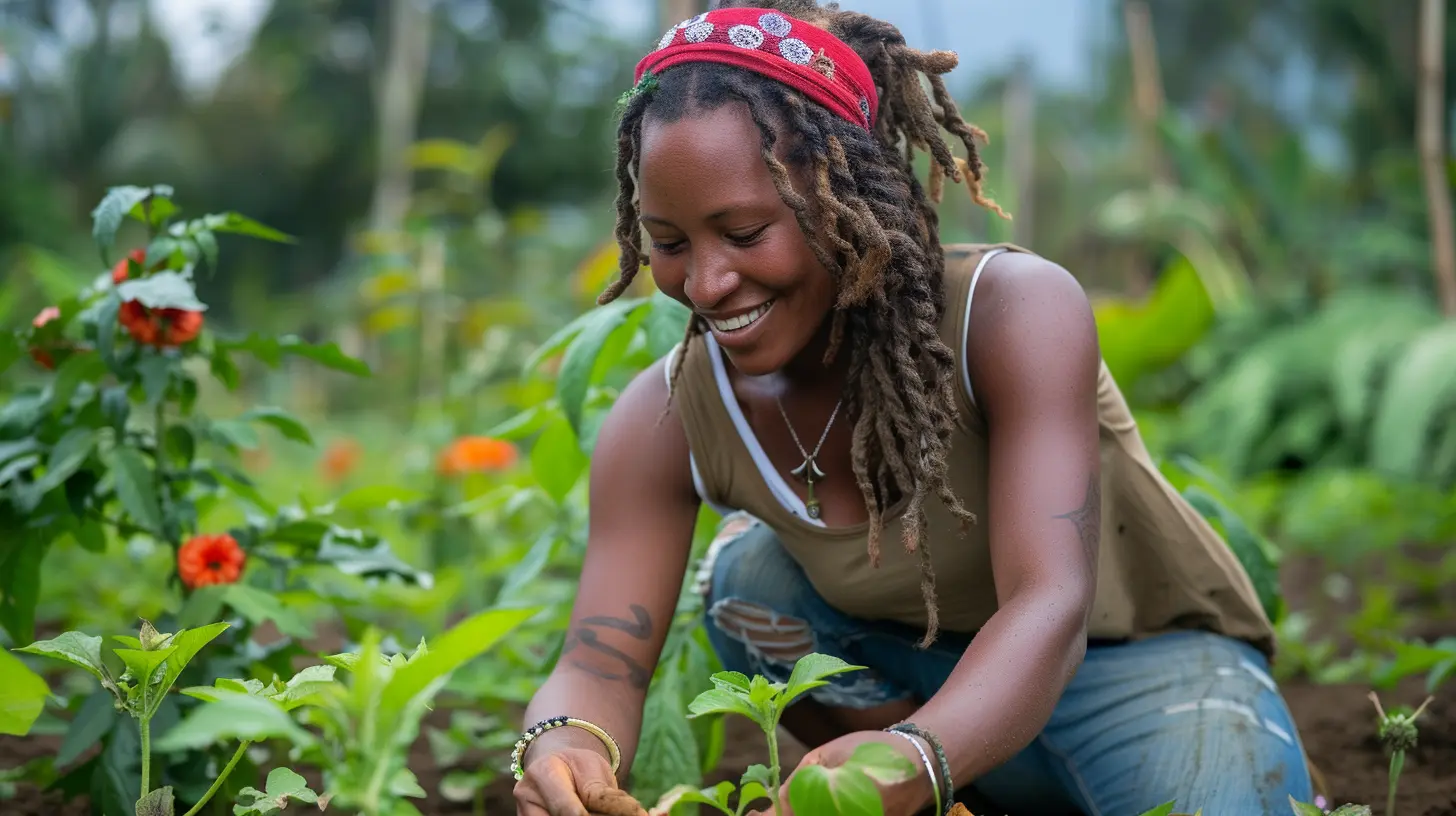Plant a Seed of Change: Volunteering for Sustainable Agriculture
9 September 2025
Have you ever thought about getting your hands dirty—literally—for a good cause? Volunteering in sustainable agriculture is more than just farming. It's about planting a seed that could grow into something much bigger: change. Whether it’s helping a local eco-farm thrive, supporting communities in food deserts, or learning how to grow your own food sustainably, your contribution can go a long way.
This isn’t just about giving back—it’s also about experiencing a lifestyle that’s slower, more grounded, and frankly, incredibly rewarding. So, if you’ve been seeking a more meaningful travel experience or a way to reconnect with nature, buckle up. We’re diving into the incredible world of volunteering for sustainable agriculture.

Why Sustainable Agriculture Really Matters
Let’s face it—our planet is in trouble. Between massive food waste, pesticide-heavy farming, and climate change, traditional agriculture isn’t cutting it anymore. That’s where sustainable agriculture comes in. It’s all about farming in a way that’s kind to the Earth, fair to the farmer, and healthy for the consumer.Sustainable agriculture involves using farming techniques that rebuild soil health, conserve water, reduce pollution, and promote biodiversity. Think compost over chemicals, crop rotation instead of monocropping, and natural pest solutions instead of toxic pesticides. It's like giving the Earth a chance to breathe again.
And here’s where volunteering comes in. Local farms and agricultural organizations need helpers—people like you—to keep this movement growing.

The Role of Volunteers in the Green Revolution
Now you might be thinking, “I’m not a farmer, what can I actually do?” Don’t worry, you don’t need a degree in agriculture or years of experience. Volunteering in sustainable farming is a hands-on, learn-as-you-go kind of gig.You could be:
- Planting seeds and harvesting crops
- Feeding animals
- Building irrigation systems
- Composting and mulching
- Educating communities on eco-friendly techniques
Basically, if you can lift, dig, water, or even just smile while learning, there’s a place for you.

Global Opportunities: Traveling With Purpose
One of the coolest things? You can volunteer pretty much anywhere on the planet. From the rice terraces of Bali to the vineyards of Tuscany, the farmlands of Kenya to organic homesteads in Argentina—you’re spoiled for choice.Platforms like WWOOF (World Wide Opportunities on Organic Farms), Workaway, and HelpX connect volunteers with hosts across the globe. These aren’t luxury resorts, but they offer something more valuable than five-star comfort: a chance to live like a local and give back to Mother Earth.
And let’s not forget—the experience is often exchange-based. You volunteer your time, and in return, you get accommodation, food, and invaluable life lessons. Kind of like a modern-day barter system, right?

Meet the Changemakers: Real Stories, Real Impact
It's not just about doing the work—it's about becoming part of a story.Take Emma, a 24-year-old environmental science student from Canada. She volunteered in Thailand at a permaculture farm. Not only did she learn how to grow papayas and build compost toilets (yep, that’s a thing), but she also taught local school kids about recycling. Today, she runs workshops back home on urban gardening.
Or consider Miguel, a digital nomad from Spain. He spent six months traveling through South America, volunteering on eco-farms and documenting sustainable practices. Today, his video series has thousands of views and continues to inspire others to get involved.
These aren’t one-off examples. Every volunteer becomes a ripple in a much larger movement.
The Unseen Perks of Volunteering for Agriculture
Sure, cultivating tomatoes in the blazing sun doesn’t scream “vacation,” but hear me out—this kind of travel comes with its own amazing perks.1. You Learn Invaluable Skills
From permaculture design to preserving food without electricity, the skills you pick up are not only eye-opening but also super handy in daily life.2. It’s Seriously Budget-Friendly
Most sustainable farms offer free lodging and meals in exchange for your help. So, if you're tight on cash but rich in time and motivation, it’s a perfect match.3. You Build Deep Connections
Working side-by-side with other volunteers and host families creates bonds that last way longer than your trip. These aren't your average tourist snapshots—they’re real-life connections.4. Mental Health Gets a Boost
There’s something incredibly calming about working with soil, being outdoors, and seeing the fruits of your labor—literally. It’s therapy without the couch.5. You Make a Real Difference
This might be the biggest perk of all. Your hands might plant the vegetables that feed a family, your composting efforts could reduce a farm’s carbon footprint, and your presence might inspire others to live more sustainably.
How to Get Started: Tips for First-Time Volunteers
Okay, so you’re sold on the idea. Amazing! But now what? Here’s a mini road map to get you started.1. Choose the Right Platform
Look into programs like:- WWOOF
- HelpX
- Workaway
- Idealist.org (for more community-focused agriculture projects)
Each platform has its own focus and vibe, so browse around and see what fits.
2. Know What You're Signing Up For
Read the host's reviews and job description carefully. Some farms are more about hard labor, while others are educational or community-focused.3. Pack Smart
Work clothes, gloves, eco-friendly toiletries, and an open mind—don’t leave home without them.4. Go With Humility and Curiosity
You’re not just a helper—you’re a student of the Earth. Be willing to learn, adapt, and contribute.5. Share Your Story
Blog about it, post photos, or just talk to friends. The more people hear about sustainable agriculture, the more the movement grows.Bonus: Combine Travel and Sustainability
Why not turn your volunteer experience into a full-blown eco-adventure? Many sustainable agriculture sites are located near other natural wonders—think waterfalls, forests, and oceans. You can spend your days helping out on a farm and your weekends hiking scenic trails or visiting local markets.It's like being a part-time traveler and a full-time changemaker.
Long-Term Impact: What Happens After You Volunteer?
Here’s the most beautiful part: the change doesn’t stop when your volunteer stint ends. The knowledge you gain, the habits you develop, and the stories you bring back home can inspire others—and even shape your future.Maybe you’ll start your own garden. Maybe you’ll advocate for local farmers’ markets in your hometown. Or heck, maybe you’ll turn this into a lifelong career in environmental work. The possibilities? Endless.
Final Thoughts: It All Starts With One Seed
You don’t need to be a superhero to change the world. Sometimes, all it takes is a willingness to give your time, learn something new, and plant a seed—literally and figuratively. Volunteering for sustainable agriculture is a powerful way to connect with the planet, with others, and with a cause that truly matters.So, the next time you're feeling stuck, or yearning for purpose, or just looking for a new way to travel, remember: the world needs more growers, more doers, more dreamers. Maybe this is your chance to be one of them.
Grab your gloves, pack your bags, and get ready to plant that seed of change.
all images in this post were generated using AI tools
Category:
Volunteer TravelAuthor:

Winona Newman
Discussion
rate this article
2 comments
Chantal Gonzalez
Transform your travel experience by volunteering; support sustainable agriculture and local communities!
February 23, 2026 at 4:00 AM
Kristina Mendez
Thank you for highlighting the importance of sustainable agriculture through volunteering! Your insights inspire readers to contribute positively to the environment while experiencing the rewarding impact of their efforts firsthand.
September 18, 2025 at 3:53 PM

Winona Newman
Thank you for your kind words! I'm glad to hear that the article resonated with you and inspired a commitment to sustainable agriculture. Together, we can make a difference!


